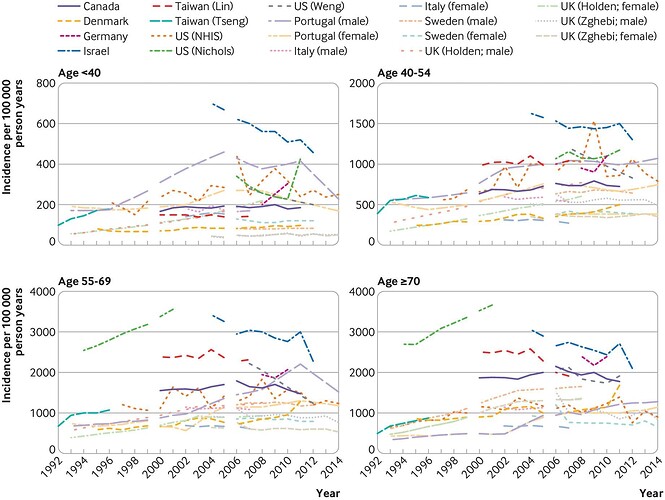Quite a long post which, I think, reflects more your own personal experience rather than the general case.
First off I think looking at care homes during Covid is quite the wrong thing - circumstances were most assuredly not normal during that period.
True, the period I have seen is actually the last three years but the principle is the same.
It is not surprising though considering that we all become much more frail as we get older - but not all of that healthcare spend is on spoon feeding people. What of the octaganarian who’s “end of life healthcare spending” is a new hip and with it several more years improved quality of life?
Maybe not much but who are you to ask. Why not ask @David_Spardo who clearly worries himself witless about getting Fran to eat and his devotion to doing so, I am sure, improves her quality of life immeasurably.
Given that we are now living longer, often into extreme old age it is not surprising that diseases of extreme old age such as Alzheimer’s are becoming more common.
Alzheimer’s, of course, is a terrible disease. My mother died with it and did so in a care home, but there is no realistic alternative because families can’t cope. We’re now going through it with my mother in law and the increased care burden is falling heavily on her two daughters, sadly I think we are some way from the point that social care services will move her to a home - if they think family are coping they will let the do just that, but the fact is that all too often families are not coping.
Who wouldn’t - I’d quite like to shuffle off this earth with a massive heart attack in my sleep, preferably fer my 100th birthday and with no pre-existing comorbidities.
It’s a myth, though, to think that there was some halcyon age where everybody got their three score and ten in good health then woke up one morning to find themselves chatting with Anubis and hoping the scales thing worked out OK for them
The main improvements in health and longevity have, of course, arisen from
[there has been a short delay, the rest of the post will be along imminently]
